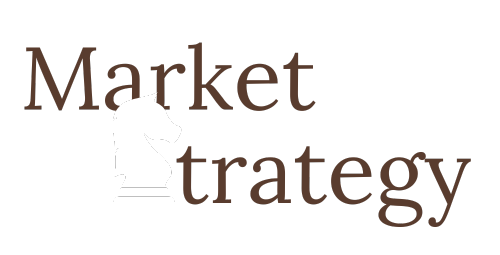You might feel like you're sending messages into the void, hoping for a response. But combining lead generation with search engine optimization is a powerful way to grow a business sustainably.
This is true despite the fact that 96% of website visitors aren't ready to purchase immediately. Let's explore how to make this combination work for you.
Why SEO is Crucial for Lead Generation
Understanding Search Intent for Lead Generation and SEO
Crafting Content That Converts
Optimizing Your Website: More Than Meets the Eye
Quick Website Wins for Lead Generation and SEO
The Power of Connection: Beyond Traditional SEO
Social Media as an SEO-Supporting Channel
Leveraging Link Building for Authority
Turning Traffic Into Leads
Tools and Platforms: Finding Potential Customers
Conclusion
Think about how you find products and services online. Almost 60% of shoppers use Google to research products. Search engines are where prospective customers actively seek solutions, making search engine optimization vital for lead generation.
Businesses are noticing that combining lead generation with SEO gets solid leads. A study showed that 59% of B2B and 49% of B2C marketers trust the SEO lead generation method.
This means that focusing on SEO lead generation is a worthwhile investment for many businesses.
It all starts with understanding what your potential customers are really searching for. It's not enough to just rank for broad keywords; you need to understand the intent behind their search.
Are they looking for information, comparing options, or ready to buy? This requires deep keyword research to figure out the best keywords, including transactional keywords, and how your potential customers look for you.
Once you understand search intent and the terms people search, you can create focused content. Target content toward what people are asking. You can do that with longer, specific "long-tail keywords," which are known to convert at a higher rate.
Did you know that long-tail keywords convert 2.5x higher than head keywords? Targeting transactional keywords, especially long-tail variations, helps in capturing leads that are closer to making a purchase.
Knowing the *what* is only half the battle; you also need the *how*. It's about providing value, building trust, and showing potential customers that you understand their needs.
This means going beyond surface-level content. Comprehensive, high-quality content often wins.
According to research by Backlinko, pages ranking #1 on Google have an average of 1,447 words. This demonstrates that in-depth content, satisfying search intent, often performs better.
The best content doesn't just spew facts, it speaks to real human challenges. Below is a table showing how different types of website content appeal to various stages of the customer journey:
Blog Posts: Awareness, Consideration. *Provide information, address pain points, build brand awareness
Case Studies: Consideration, Decision. *Showcase success stories, demonstrate value proposition
Comparisons: Consideration. Compare to competitiors to stand apart
Whitepapers/eBooks: Consideration, Decision. *Offer in-depth knowledge, establish thought leadership
Webinars: Awareness, Consideration. *Engage audience, showcase expertise, generate leads
Infographics: Awareness, Consideration. Present information visually, increase shareability
Consider implementing some quick fixes for your site that make your site faster. These small changes can make big changes on search engines:
Responsive Design: Make your website friendly for mobile users. The best route for creating a mobile-friendly site is responsive design.
Fast Hosting: Use a hosting provider that’s known for speed and good uptime.
Image Optimization: Use a compressed file-size to make images load fast.
Test from anywhere: You may be interested in seeing how fast things run outside your region. Using an iOS VPN, you can help see the load times for regions where you want the best leads.
Looking to explore more ways to speed up your site? Check out some top suggestions for speeding up your site.
These steps contribute to better visitor engagement, as a faster website keeps visitors on your page longer. The longer a visitor spends on your site, the better the chances of capturing their contact details.
Modern search includes thinking beyond keywords. Connecting with potential leads across multiple marketing channels can make your lead generation take off.
A survey of marketing efforts has shown 73% of marketers view their work as somewhat effective and growing. This approach of moving away from keywords only seems like the smart route to explore as part of a digital marketing strategy.
Using social media as a support to the overall search strategy includes sharing valuable insights and encouraging engagement. Think beyond self-promotion and participate in the culture of your social spaces.
Some groups, like 57% of Gen Z, love it when brands play along with online memes. Integrating social media into your SEO practices helps reach a wider audience and potentially capture more leads.
Building genuine relationships with other websites and authoritative voices is so critical. Link building, often through guest posting, is the art of getting high-quality sites to link to your website content.
Consider linking and connecting to sites that rank higher to enhance your standing and traffic. These help in gaining domain authority.
But link quality matters more than the raw number of links, making outreach critical. You might seek relationships with online creators with a good following by inviting them for guest contributions.
Here's where link building comes in, and the impact you get back to your lead generation is often called Link Juice. When people or web publishers feel you made content they like, there is a greater chance to get more views to your content when the publisher links back to you.
“Link building is the hardest part of SEO.”
That quote above is a common theme echoed across many of those deep in SEO strategies. 93.8% of link builders say link quality means more than just a number of links.
Yet over half of experts call it the most challenging. You can connect with other brands by creating a partnership for mutual link opportunities or by contributing content for other websites that your target audience frequents.
In exchange for the shared ideas, those creators will reciprocate links back to you. Building links from reputable sources is crucial for improving your site’s domain authority.
Attracting visitors is just the starting point. The goal of linking for juice and implementing SEO practices is getting that traffic to convert into SEO leads.
Are you guiding people with call to action words? Make sure people who land on your website content see a path, even if it includes looking deeper into your blog or pages, or clicking newsletters options.
Your potential future customers or readers want to see how you could support what is going on for them. Providing valuable insights and clear calls to action increases the likelihood of capturing their contact details.
This kind of growth can start right on your existing pages. Look at your old or existing popular content that connects.
Those links can build an entire sales funnel that delivers for years after they originally publish. For one past case study of a project of that kind, we looked to what worked and what could grow next. This lead to a beta launch of our search engine and saw traction immediately, which got several media mentions.
Want more ideas on where those leads can connect? There's tools and even places that make tracking and reaching leads better than in years prior.
Below are some examples. Do not view these as an endorsement from any particular platform.
Apollo: Finds leads by industry.
UpLead: For getting lead contacts.
GetProspect: Extraction of email, often for marketing leads.
RocketReach: Has a large B2B contact listing for lead generation and connection opportunities.
BuiltWith: Looks at competitors in your area/genre.
Lead generation and SEO is not a sprint. It takes sustained work, dedication, consistency and investment, like so much does with marketing online.
If you focus on high-quality content that matches your target audience and their search intent, you'll attract more visitors. By optimizing your website and building quality links, you can convert those visitors into valuable leads and grow your business.
.png)







